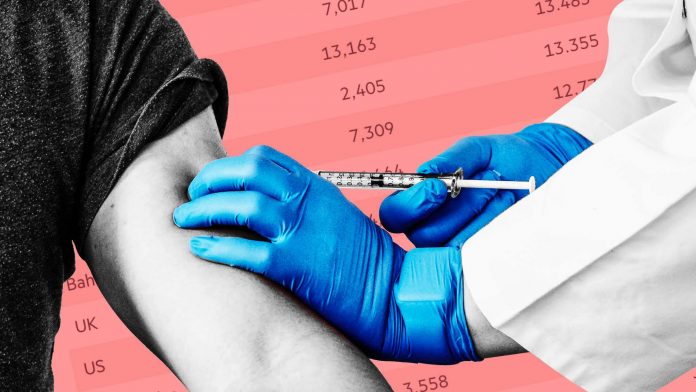The head of DHL has accused governments of failing to prepare adequately for the rollout of Covid-19 vaccines, blaming distribution delays on a lack of local storage and delivery solutions.
“Overall, we have not seen enough foresight for how the ‘last mile’ will work,†Frank Appel, Deutsche Post DHL chief executive, told the Financial Times. “That is the key bottleneck — how do you get it to the patient?â€
The company, which operates more than 260 aircraft, is among those contracted to deliver the BioNTech/Pfizer jab. It has revamped its forwarding facilities across Germany to handle dry ice and keep the product stable at about minus 70C during transport.
While Mr Appel conceded that managing dry ice was “a challenge for local doctorsâ€, the former neurobiologist insisted infrastructure could easily be built in large car parks to facilitate local distribution, saying: “It’s not rocket science.†The DHL boss excluded Germany from his criticism.
The Bonn-based group has warned that logistics providers will have to increase capacity to deliver an expected 10bn vaccine doses worldwide over the next two years, which it says will require 15,000 flights, as well as 200,000 shipping pallets and 15m cooling boxes.
Some countries, such as the US, have also struggled to recruit enough trained vaccine administrators.
However, Mr Appel insisted that “the limit will always be the production [of vaccines] and not the logisticsâ€.
The volume of vaccine deliveries so far was “tiny in comparison to what we move on an annual basisâ€, he added.
DHL, which runs 250 flights a night, would always give shipments of vaccines the “highest priorityâ€, he added. But in the event that logistics groups’ capacity is exhausted, parked passenger planes could be enlisted to help.
“In the desert, there are probably 3,000 wide-body aeroplanes standing there waiting,†he said. “We would activate those.â€
He expressed frustration at the lack of attention paid by governments to the challenges of distributing the vaccine to patients, particularly in the developing world.
“We have been planning since February,†he said, while politicians were “always looking at what is happening next week, instead of looking more distant somehow and saying: ‘we know there might be a vaccine, what is the best way to prepare for it’â€.
In September DHL released a study warning that two-thirds of the world’s population would be unlikely to have easy access to any coronavirus vaccine that needed to be stored at freezing temperatures.
Mr Appel said he had sent it “to many governments†and “some responded and others didn’tâ€.
The executive also said that Deutsche Post DHL, which employs 550,000 people worldwide, would not follow Lidl’s decision to pay staff to be vaccinated.
“We would never incentivise people,†he said. “We would rather [convince staff] by being role models.
“I would go tomorrow to role model that, but then people would say, ‘oh, the CEOs are getting better treatment’.â€





